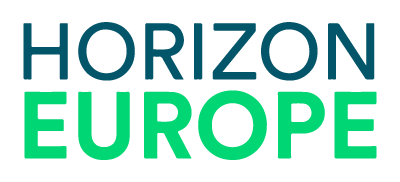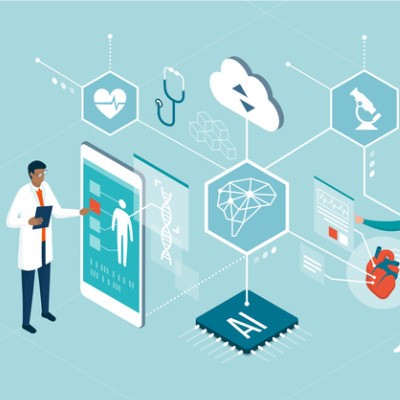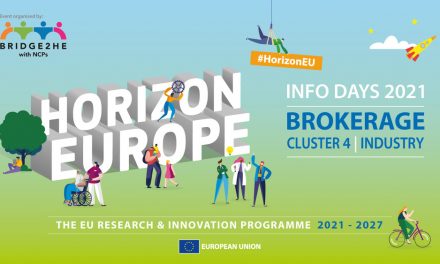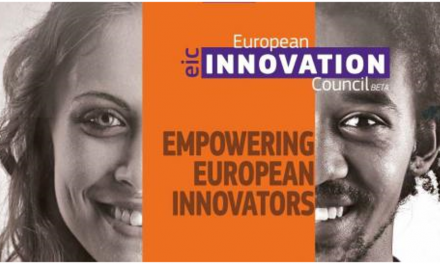Artificial intelligence (AI) refers to systems that show intelligent behaviour: by analysing their environment they can perform various tasks with some degree of autonomy to achieve specific goals.
Key Takeouts:
In this article we look at five AI projects with Irish coordinators and partners that address topics including -E-smart home assistants, care for cancer patients and attempt to reduce sepsis-related mortality in babies. Walton, part of the Waterford Institute of Technology, is leading a project that aims to develop a model for mental health monitoring of cancer patients, to improve their quality of life.
Artificial intelligence can significantly improve people’s lives and bring major benefits to our society and economy through better healthcare.
The full monetary value of the five projects is over €23 million and the Irish participants have drawn down almost €4.5 million of that. Information on each project is listed below.
CLARIFY (Cancer Long Survivor Artificial Intelligence Follow-up)
November 2019 – October 2023, €486,250
The CLARIFY project will identify the risk factors that impact cancer patient´s quality of life after oncological treatment by using Big Data and AI. Data from more than 15,000 survivors from breast, lung and lymphoma cancer (the most prevalent types) will be analysed. This will help to stratify cancer survivors by risk in order to personalise their follow-up by better assessment of their needs.
Clarify will also develop an innovative platform that supports decision-making for medical doctors to improve the care of cancer survivors.
‘Although AI and machine learning models are good at making predictions, they usually do not provide an explanation for the prediction’, said Dr Dirk Fey, University College Dublin (Systems Biology Ireland). ‘At UCD we have developed methods that allow us to fill this black box with detailed biological knowledge and simulate how cancer cells responds to treatments for each patient. Providing such explanations in terms of the underlying biology is critical for gaining trust into the prediction and can help to make better treatment decisions’.
Big Data and AI techniques will be used to integrate all available patient’s information with publicly available relevant biomedical databases and from Electronic Health Records (EHRs) as well as information from wearable devices used after treatment. This data will be analysed to predict patient-specific risk of developing secondary effects and toxicities from their cancer treatments.
Irish partners: Dr Vit Novacek, Insight Centre, NUI Galway and Dr Dirk Fey, UCD (Systems Biology Ireland) and Accenture. Twelve Project partners in five countries, Spain, Germany, UK, Portugal and Ireland.
Click here to access the CLARIFY Website
CAPTAIN (Coach Assistant via Projected and Tangible Interface)
December 2017-November 2020, €291,312.
The CAPTAIN project is creating a smart personal coach for the home of the older adult. It uses technologies that collect and analyse emotional, behavioural and physiological data in a noninvasive manner. It is being tested in three Living Labs as well as in real homes of volunteer older adults. CAPTAIN proposes a transparent technology designed to turn the home of the older adult into a ubiquitous assistant specifically designed to compensate for their physical and memory impairments during their daily living.
A smart home appliance that will embed miniaturised 3D scanners, cameras, pico-projectors, microphone arrays and environmental loudspeakers, it will be used to turn a room into an interactive, tangible interface. Different configurations of the appliance will be designed together with seniors to ensure the device blends with the room decor (e.g. resembling a lamp), to avoid stigmatisation and to enhance end-user acceptability.
A software environment turning the home itself into a projective and very user-friendly interface, capable of capturing relevant physiological, behavioural data and user actions, and to provide personalised “virtual coaching”.
Non-invasive physiological and emotional data analysis from facial micro-expressions and human body pose is possible thanks to scalable, robust, and accurate deep learning and AI. The coach will leverage on a motivational engine to promote correct nutrition, physical activity, cognitive and physical training, risk avoidance, and social participation.
Dr Louise Hopper, School of Psychology, Dublin City University, said ‘CAPTAIN explores how AI can be better used to analyse the data that the system collects about the individuals who use the system. ‘For example, how characteristics of people can be used to identify profiles that can in turn improve personalised recommendations and guidance. ‘We have had some interesting differences in how Data Protection Officers in different EU Member States interpret GDPR in relation to using data for advanced profiling. This is not a black and white situation; it is several shades of grey instead’.
Irish partners: Dr Louise Hopper, Dublin City University and Dr Unai Diaz-Orueta, Maynooth University. Fifteen Project partners in nine countries, Cyprus, Estonia, France, Germany, Greece, Ireland, Italy, Spain and Switzerland.
Click here to access the CAPTAIN Website
FAITH (AI analytics for mental health monitoring in cancer patients)
January 2020 – December 2022, €1,671,859.
This Irish-led project’s aim is to develop a better model for mental health monitoring by applying Artificial Intelligence to remotely identify depression markers, using Federated Learning, in people that have undergone cancer treatment.
The concept of the project is based around a federated machine learning approach, which builds machine learning systems without direct access to personal treatment data. Individual patient devices will run their own personalised AI models, and a global AI model will aggregate the individual model learnings to train a centralised model for re-distribution back down to the devices.
The AI model will analyse depression markers predicting negative trends in order to enable timely intervention. The project consortium has trial sites in Madrid, Waterford, and Lisbon, with a key strength in FAITH being the involvement of these eminent cancer hospitals and specialists in the consortium, who provide relevant applicable cancer care related use cases.
The FAITH concept will present healthcare providers with advanced warnings to allow timely intervention and make cancer patients more aware of their mental health situation, giving them the possibility to improve their quality of life. The trial sites in Madrid, Waterford, and Lisbon will assess and validate the concept to ensure its usefulness, involving real end users (both clinicians and patients).
The project is led by Dr Gary McManus and Dr Jim Clarke (TSSG), Waterford IT. Other Irish partners on the project are Euro Care Healthcare Ltd. and TFC Research and Innovation Ltd. Nine Project partners in five countries, Cyprus, Ireland, Italy, Spain and Portugal.
Click here to access the FAITH website
Digi-NewB (Artificial intelligence for the benefit of premature newborns)
March 2016 – May 2020, €1,065,500.
The Digi-NewB project aims to improve care for the new-born thanks to the development of a new generation non-invasive monitoring system, using big data techniques and artificial intelligence to extract key information from multi-source data. Each year in Europe, more than 300,000 babies are born prematurely. They are more exposed than others to the risk of sepsis, or infection. The project aims to achieve improved early sepsis diagnosis and thus a reduction in sepsis-related morbidity and mortality in neonatology services as well as monitoring cardio-respiratory and neurobehavioral maturation.
Since the start of the project, 568 new-borns have been monitored in the 6 University hospitals involved in the project, for physiological signals (heart rate, respiratory rate, etc.), clinical annotations and video and sound recordings. These data were analysed with continuously improved processing tools aiming at a quicker and more efficient real-time data analysis to be applied in the future system.
A first demonstration of a prototype was launched in May 2019 delivering a full interface enabling the visualisation of the sepsis risk and its evolution, the contributing features and their evolution. This will be used as a medical decision support system where clinicians can view a sepsis risk score evolution in time, view selected parameter trends, and replay video recordings for any given time. The system is easy to use and install, thanks to usability studies held in several hospitals with care staff.
The Irish partners: Gearoid O’Laighin, NUI Galway working on user-centered design and Gerard Lyons, from an SME, Syncrophi Systems Ltd with expertise in innovative hospital information systems. Seven Project partners in four countries, France, Ireland, Finland and Portugal.
Click here to access the Digi-NewB website
BD4QoL (Helping head and neck cancer survivors get back to normal life)
January 2020 – December 2024, €405,625.
The BD4QoL project aims to improve HNC survivors’ quality of life by developing a person-centred monitoring and follow-up plan. It will use AI and Big Data collected from mobile devices, in combination with multi-source clinical and socioeconomic data and patients’ reported outcomes.
The number of treatment options available for head and neck cancer (HNC) has increased in the last decade thanks to advanced technologies.
While current post-treatment care plans focus on functional and health conditions, there are socioeconomic determinants of quality of life that also need to be addressed.
Analysis of the quality of life indicators collected over time will facilitate early detection of risks, prevent long-term effects of treatment, and inform patients and caregivers for personalised interventions.
The Irish partner: IBM Ireland. Twelve Project partners in seven countries, Italy, Germany, UK, Greece, Spain, Norway and Ireland.
Click here to access the BD4QoL Website
Article submitted by Kay Duggan-Walls, National Contact Point for Health, Horizon Europe





